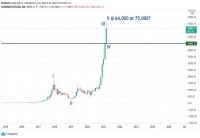|
Opalesque Industry Update – Alexander Ineichen, ex-UBS head of research, and now founder of Ineichen Research and Management as well as Senior Advisor to Prime Capital in Frankfurt, wrote a comprehensive report focused on the alternative investments industry. It is the first report produced by his company. In it, he presents several ideas focused on topics such as: the term “absolute return”, a post-post-modern portfolio theory (with a common-sense assumption about investors), asset raising, regulations and politics for hedge funds now, the trust that the hedge fund industry is gaining back, and financial crises on the Richter Scale.
Below is an introduction to the report and a summary. The report can be accessed here: Source.
Absolute returns: clarification
The term “absolute returns” has been battered as well as misused
by business and politics alike. We aim to clarify. The term stands for
an investment philosophy that stands in stark contrast to financial
orthodoxy. And that’s a good thing.
Market heterogeneity with moderately leveraged financial
institutions reduces systemic risk. Market homogeneity with
excessively leveraged institutions doesn’t.
After challenging some “axioms” of financial orthodoxy, we
introduce PPMPT (Post-post-modern portfolio theory) as an
alternative to mean-variance optimization.
In search of permanent capital
Most hedge fund managers gather assets the old fashioned way.
They take out their knee pads and tin cups and go begging – one
investor at a time. This is a tough road. It generally requires an
appearance by the founder and/or portfolio manager and disrupts
their ability to maximize returns.
Premiums (for insurers and
reinsurers) and deposits (for banks) are wonderful alternatives that
do not take anywhere near the same effort to generate and do not
tie up the founder or portfolio manager’s time.
UCITS: Latest hype or investor panacea?
UCITS look very much like a new market reality. The migration from
an exclusively offshore business model towards a model including a
UCITS offering seems to be a logical evolution. However, hedge
fund managers need to understand that UCITS is not an asset
management tool but rather a distribution wrapper. The main
challenge lies in the fact that UCITS asset gathering is a
fundamentally different exercise than the way they have raised
assets so far.
***
Report: Executive summary
Risk management is a craft, neither a science nor an art. It works on the
premise of learning by doing. Interestingly, financial regulation also seems to
work on the premise of learning by doing. (Basel I, Basel II, Basel III, etc.)
Regulatory zeal
The financial crisis was not “caused” by a single event or a single group of
investors. More likely, a series of conditions needed to be met for the dominos
to fall one by one and the system to crack. The idea that hedge funds were
the first stone to fall and thereby causing the chain reaction, seems infinitely
improbable from what we know today. However, a disproportionate amount
of regulatory zeal and political energy is spent on regulating “alternative”
funds. This we find odd, especially given that the “too big to fail” issue is the
single most important aspect related to systemic risk and is far from being
resolved.
Politicians, speculators and the blaming game
Politicians blamed speculators for “causing” oil to go to $147. However,
politicians didn’t thank speculators for “causing” oil going back to $35. This
seems odd. In the Greece situation, it’s again the speculators who get blamed.
Bismarck often remarked that if one likes laws and sausages it is best not to
see them being made. This is probably also true for the price mechanism in a
free market economy, as the impact of the market responding to bad news
isn’t always pretty.
Post-post-modern portfolio-theory
Reality is always easier to understand when modelled in one form or another.
A model is a simplified map of reality’s complexities. However, if we learn that
the models do not work, then instead of increasing the complexity of the
model, we could also try to simplify reality.
Many investment choices do not fit into the current scientific framework.
Correlations spike when diversification is most needed, and many of the first
principles of finance are challenged. We introduce post-post-modern portfolio-
theory (PPMPT) that isn’t built on the onerous assumption that investors are rational. PPMPT assumes investors are not rational but human and implicitly recommends questioning all science that assumes investors are
rational and not human. (The funny thing is, of course, assuming investors are
human and not rational is actually more rational.)
Managed futures
In a financial crisis correlation moves towards unity. However, managed
futures seem to defy the gravitational pull time and time again.
“Trust, but verify”
The hedge fund industry has lost dearly because trust was lost. This trust is
currently being re-gained. This takes time. Those market players who behaved
prudently during the crises are having an advantage versus those who didn’t.
Forced to summarise the relationship between investor and manager going
forward, we would opt for: “Trust, but verify.”
Hedge funds are very close to high water mark and assets under management
have recovered and are just 2% below their all-time-high from October 2007,
according to HFR.
Historical accidents
We argue that financial crises are (historical) accidents and discuss a financial
equivalent to the Richter Scale. It’s safe to say that there will be further
accidents down the road. Active risk management and an “absolute returns”
focus remain the most viable options when dealing with uncertainty.
Source.
Ineichen also recently produced entertaining commentaries on current events in the alternative fund industry called The Ineichen Dialogues: Source.
See our latest ASQUARE report on Prime Capital (which non-ASQUARE subscribers can purchase individually) here: Source.
Bg
| 




 RSS
RSS







